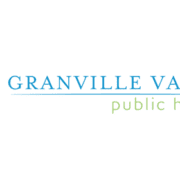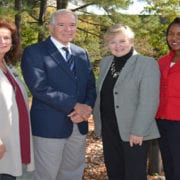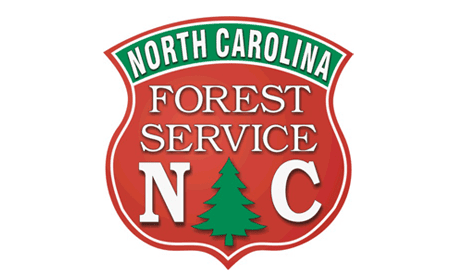N.C. Bioenergy Research Initiative announces grant recipients
/by WIZS StaffThe N.C. Bioenergy Research Initiative recently awarded $1 million in grants for 13 research projects to boost bioenergy opportunities and production in the state.
“These grants continue to push our knowledge of bioenergy applications in North Carolina forward, creating the potential for future market opportunities for farmers, agribusinesses and forestry industries,” said Agriculture Commissioner Steve Troxler.
Below is a list of grant amounts, recipients and projects:
- $43,618 to N.C. State University’s Department of Biological and Agricultural Engineering for the third year of its study of fertilization rates and yield response of the giant reed Arundo donax. The project will focus on collecting field data needed to establish realistic yield expectations and nitrogen fertilization rates under various North Carolina growing conditions.
- $55,835 to the NCSU Department of Forestry and Environmental Resources for “Loblolly Pine Biomass Genetics/Cropping Study – 2016-2017.” The project will continue genetic evaluation of loblolly pine varieties with high potential as an energy source.
- $148,804 to the NCSU Department of Crop and Soil Sciences for a project titled “Nutrient Dynamics and Production of Bioenergy Crops in Swine Effluent Sprayfields, 2016-2017.” Funding will continue research on the nutrient requirements and uptake of proposed biomass crops grown in a sprayfield environment.
- $148,650 to Carolina Land & Lakes RC&D for the development of “Pellets for Pullets.” This expands a previously funded project into areas of the state with a higher concentration of broiler production. Wood pellet heating systems have been shown to offer cost savings, reduction in moisture and fossil fuel by-products and delivery of a better product to market, while utilizing a renewable domestic fuel.
- $30,167 to the NCSU Department of Crop and Soil Sciences for the second year of the study “Suitability of N.C. Piedmont Soils for Bioenergy Crop Production.” The project investigates the potential conversion of land to bioenergy crops with an emphasis on how soil biochemical and physical properties will be impacted.
- $50,000 to Power Resource Group LLC for a project titled “Crops to Litter to Fuel.” Combinations of giant miscanthus, biochar and pine shavings will be tested against traditional pine shaving litter in turkey brooder houses. Spent litter will be tested to see if it can successfully serve as a high-BTU feedstock for combined heat and power production.
- $32,213 to the NCSU Department of Crop and Soil Sciences for the first year of a two-year project titled “Weed Management in Miscanthus and Switchgrass Bioenergy Cropping Systems.” This builds on a previously funded herbicide project, but will focus more on weed management while establishing giant miscanthus and switchgrass, two potential bioenergy feedstock crops.
- $103,470 for the first year of a three-year project titled “Predicting Short Rotation Woody Crops Productivity and Economic Feasibility.” This collaborative effort between the NCSU Department of Forestry and Environmental Resources and N.C. A&T State University’s Department of Economics will use previously funded projects to refine and validate a forest productivity and economic model. This model will facilitate stakeholder decision-making for short rotational woody crop production and procurement as well as provide best land management practices to landowners via a web-based interactive tool.
- $147,851 to the NCSU Department of Horticultural Science for the project “Gene Editing for Improved Energy Canes.” This project will build on previously funded projects focused on breeding high biomass, cold hardy hybrids. Efforts will now focus on refining regeneration systems and the development of gene-editing technologies for the development of seedless cultivars.
- $24,818 to Tyton Biosciences LLC for the project titled “Energy Tobacco Variety and Sprayfield Trials.” In partnership with NCSU, Tyton will build on results from its previous energy tobacco work by conducting variety trials of modified energy tobacco to maximize biomass yield and evaluate hardiness and other plant characteristic. Work will also include testing energy tobacco in a sprayfield environment to determine nutrient uptake.
- $58,004 to the NCSU Department of Crop and Soil Sciences for “Developing Industrial Hemp in North Carolina.” This work will investigate the feasibility of industrial hemp for food, fiber and fuel by evaluating varieties and developing best management practices such as planting dates and response to plant growth regulators.
- $59,339 to the NCSU Department of Forestry and Environmental Resources for year one of a project titled “Loblolly Pine Plantations to Maximize Bioenergy Production.” This two-year project builds on previously funded work and will utilize two established experimental stands of loblolly pine. Results from this novel design will provide a better understanding of superior genotypes, crown forms, spacing and silviculture practices to optimize loblolly pine for bioenergy production.
- $97,231 to Appalachian State University’s Department of Sustainable Technology and the Built Environment for the project “Demonstrating Syngas Production from Bioenergy Crops.” This project builds on previously funded work that developed methods of heating greenhouses with biomass. The next focus will be using biomass grown on-site to produce syngas for heating as well as biochar as a soil amendment for the biomass production.
The N.C. Bioenergy Research Initiative is a program of the N.C. Department of Agriculture and Consumer Services. Its goal is to support the research and development of agricultural and forestry-based feedstocks for bioenergy production and agribusiness development. The N.C. General Assembly approved funding for grants to stimulate energy production from N.C. agricultural and forest products.
VGCC Health Sciences students connect with employers
/by WIZS StaffVance-Granville Community College held its second annual Health Sciences Career Fair in December at the college’s South Campus in Granville County. The event was organized by the VGCC Career Services department and Health Sciences division to help students in health-related programs to meet potential employers and explore career options.
Participating health care facilities included Granville Health System, Murdoch Developmental Center, Maria Parham Medical Center, UNC Physicians Network, Rocky Mount Rehabilitation, the R.J. Blackley Center, Franklin Oaks Nursing and Rehabilitation Center, VCU Health Community Memorial Hospital and Central Regional Hospital. Representatives talked to students about their career aspirations and accepted their resumes.
Several institutions of higher learning were also on hand to talk with students about options to continue their education. The four-year schools included Chamberlain College of Nursing, Grand Canyon University, North Carolina Central University, North Carolina A&T State University, UNC Wilmington, Lees-McRae College and Cabarrus College of Health Sciences.
Attendees included students from VGCC programs including Nurse Aide I and II, Medication Aide, Phlebotomy, Practical Nursing, Associate Degree Nursing, Medical Assisting, LPN to ADN Transition, Criminal Justice Technology, Medical Office Administration, Radiography, Pharmacy Technology and Medical Coding, along with some who are preparing to enter Health Sciences programs.
For more information on VGCC’s Health Sciences programs, contact Audrey Stainback at (252) 738-3210.
For more information on career services at VGCC, contact Linda Fletcher at (252) 738-3466.
Volunteers Needed For Men’s Homeless Shelter To Remain Open
/by John C. RoseIt’s cold. It is Christmas. And the local men’s homeless shelter needs volunteers to remain open.
“The primary need is for overnight volunteers for Tuesday, Wednesday and Thursday prior to Christmas and for the days between Christmas and the new year,” said Dr. Ron Cava, senior minister at The First Baptist Church of Henderson, NC. Cava serves as the chairman of the board of directors for Community Partners of Hope, which runs the shelter.
To volunteer email cpofhope@gmail.com or contact Jane King (Volunteer Coordinator) at 252-432-9494. Volunteers need to be male.
There is a calendar on the Community Partners of Hope website, and you can see what times are needed.
The average attendance this season has been about six men per night. Some are moving through the area and others are being helped by the shelter to get on their feet. “The overnight shift is just really — I don’t mean to minimize it because it is very important, but we need warm, male bodies who will come and be there and in the case of some sort of emergency could pick up a phone and call for help,” Cava said.
At this time it also sounds like from what Dr. Cava is saying that the fallback options to staff the overnight times have been unusually over extended, meaning a shelter closure is possible on nights when no overnight volunteers are able to be scheduled.
Numerous area churches take various weeks of time to staff the shelter with volunteers, but it takes community-wide participation from individual volunteers as well to fill all the time.
Most nights at the shelter, a few men needing a place to sleep come in at 9:00 p.m. after having already received food and the option of a hot shower by the shelter’s intake crew. It’s lights out at 10:00 p.m. “Overnight volunteers stay until 6:30 the next morning, and the men know the routine to get things cleaned up in the morning and then have to be off the premises at that time,” said Cava.
Two of the shelter managers, who received much praise from Cava, are former occupants of the shelter. Darryl Jones and Kenny Blackwell are both former homeless people. Cava said, “They have both been there. They know where these men are and how they’re feeling. They’ve both succeeded at full recovery. Darryl came through our shelter two years ago, spent a year in our transitional home and is out on his own doing really, really well and is giving back.”
Cava said, “For some reason, we’ve had a lot of our volunteers from previous years to age out, have had physical problems, and our volunteer ranks have been thinned in the last year pretty dramatically, and we have not been very successful in replenishing them even though we are constantly reaching out to — our core base is our churches.”
One of the things the shelter would like to do soon is increase its funding. For example, it may be impossible for an individual or a church or other group to physically volunteer at the shelter, but it may be possible, according to Cava, for this same individual or group to help fund the shelter, which would then hire the required overnight personnel.
“It would be immoral in my opinion to know we are about to have frozen precipitation, to know it’s going to be 30 degrees and a man has no other place to go, and we’re going to have to say sorry, we can’t open the shelter because we don’t have volunteers,” Cava said.
To be a volunteer “you have to be able to smile, say good evening, you have to be able to sit in a recliner and watch them sleep,” Cava said. If there are two volunteers, each can take turns and get a little rest as well. “It’s not baby sitting. These are grown men, who for a variety of reasons find themselves in the circumstances they are in and need some help,” he said. The rules are posted and gone over at check in by the intake staff.
Cava is passionate about this ministry. “We know the story of Mary and Joseph and our Lord being born in a cave instead of in a warm environment, and I just can’t bring myself to think about these men not having somewhere safe and warm to sleep just before we celebrate the birth of our Savior.”
Triangle North Healthcare Foundation endows new VGCC Scholarship
/by WIZS StaffThe Triangle North Healthcare Foundation recently endowed a new scholarship specifically designed to support Vance-Granville Community College Nursing students who are enrolled in a new program to complete bachelor’s degrees.
In awarding the “Triangle North Healthcare Foundation RIBN Academic Achievement Award” scholarship, preference will be given to students in the “Regionally Increasing Baccalaureate Nurses” (RIBN) program. RIBN students are simultaneously enrolled at the community college and North Carolina A&T State University. They earn associate’s degrees in nursing through VGCC over three years (while also taking A&T courses online) and then continue for one year of additional courses at A&T required for the Bachelor of Science in Nursing (BSN) degree.
Val Short, the executive director of the foundation, and Dr. Roddy Drake, chairman of the foundation’s board of directors, visited the college to present contributions to the VGCC Endowment Fund. The new endowment marks a continuation of the partnership between the college and the foundation, which has already created a scholarship for students in VGCC Health Sciences programs.
“As part of our mission of service to the region, we are pleased to be able to provide a second scholarship,” Short said. “Education is something that we value, especially the education of our future health care professionals.”
Both Short and Drake noted that higher education is important to the foundation in general, beyond its benefits for workforce development. “Additional education is associated with improved health for people in our region, because having education beyond high school moves people out of poverty,” said Drake, a retired public health director. “Education and the economy directly influence health outcomes.”
Short added that the foundation was particularly interested in supporting the RIBN program. “This is a great opportunity for students in our area to be able to earn a bachelor’s degree without having to leave their home community for four years,” she said. “In addition, having a bachelor’s degree provides more opportunities for nurses to grow professionally and have more career options, so we are glad to be part of such a partnership.”
The Triangle North Healthcare Foundation is a regional grant-making organization that was established in 2011 as the successor to the Maria Parham Healthcare Foundation. The foundation focuses on Vance, Granville, Franklin and Warren counties, which also constitute the college’s service area. Its mission is to encourage, support, and invest in quality efforts that measurably improve health in the Triangle North region.
“We are grateful to the Triangle North Healthcare Foundation for partnering with our college to further enhance the RIBN program,” said Dr. Stelfanie Williams, VGCC’s president. “This scholarship will be a new source of support that will help outstanding Nursing students to achieve professional and personal success.”
Through the Endowment Fund, VGCC has awarded more than 8,500 scholarships to students since 1982. Scholarships have been endowed by numerous individuals, industries, businesses, civic groups, churches and the college’s faculty and staff. Tax-deductible donations to the VGCC Endowment Fund have often been used to honor or remember a person, group, business or industry with a lasting gift to education. For more information, call (252) 738-3409.
Burning ban issued for 22 additional counties to protect lives and property
/by WIZS StaffAgriculture Commissioner Steve Troxler today banned open burning and canceled all burning permits for 22 more counties in Western North Carolina. Added to the list are Alleghany, Anson, Ashe, Cabarrus, Caswell, Davidson, Davie, Forsyth, Guilford, Iredell, Mecklenburg, Montgomery, Randolph, Richmond, Rockingham, Rowan, Stanly, Stokes, Surry, Union, Wilkes and Yadkin counties.
The burning ban will take effect at 5 p.m., Monday, Nov. 21, and will be in effect until further notice.
Under North Carolina law, the ban prohibits all open burning in the affected counties, regardless of whether a permit was issued. The issuance of any new permits also has been suspended until the ban is lifted. Violation of the ban carries a $100 fine plus court costs of $180.
The ban on open burning is necessary because of the dry weather conditions and the potential for the increase in human-caused wildfires in the region. As of Nov. 20, there have been 3,021 wildfires affecting more than 19,058 acres on state protected lands across North Carolina this year. In the mountains alone, there have been 1,203 fires that have burned 4,015 acres.
Those numbers do not include fires burning on federal lands, the Party Rock fire near Lake Lure and the Chestnut Knob fire. The Party Rock fire has burned 7,171 acres since it was first reported on Nov. 5. The Chestnut Knob fire, burning in the South Mountain State Park, has burned 6,433 acres since it was first reported on Nov. 6. These fires, combined with those on federal lands, have burned closed to 46,000 acres in Western N.C. State protected lands include state and private owned properties.
“Fire experts with the N.C. Forest Service feel the current drought situation and the increase in available forest fuels makes it necessary to increase the number of counties under the burn ban,” said Agriculture Commissioner Steve Troxler. “We want to be proactive in our approach and take appropriate action to prevent the potential for human-caused wildfires.”
An open burn ban is now in place for the entire counties of Alexander, Alleghany, Anson, Ashe, Avery, Buncombe, Burke, Cabarrus, Caldwell, Caswell, Catawba, Cherokee, Clay, Cleveland, Davidson, Davie, Forsyth, Gaston, Graham, Guilford, Haywood, Henderson, Iredell, Jackson, Lincoln, Macon, Madison, McDowell, Mecklenburg, Mitchell, Montgomery, Polk, Randolph, Richmond, Rockingham, Rowan, Rutherford, Stanly, Stokes, Surry, Swain, Transylvania, Union, Watauga, Wilkes, Yadkin and Yancey.
Here are a few facts about the law regarding the ban on open burning:
- The burn ban does not apply to cooking fires such as grills or outdoor cookers.
- The ban does not apply to a fire within 100 feet of an occupied dwelling. County fire marshals have jurisdiction over open burning within 100 feet of an occupied dwelling. The N.C. Forest Service has advised county fire marshals of the burning ban and asked for their consideration of also implementing a burning ban. In addition, other local ordinances and air quality regulations may also impact open burning.
- If a fire within that 100-foot area escapes containment, a North Carolina forest ranger may take reasonable steps to extinguish or control it. The person responsible for setting the fire may be responsible for reimbursing the N.C. Forest Service for any expenses related to extinguishing it.
- Open burning includes burning leaves, branches and other plant material. In all cases, it is illegal to burn trash, lumber, tires, newspapers, plastics or other non-vegetative materials.
- Outdoor burning is also prohibited in areas covered by Code Orange or Code Red air quality forecasts.
Local fire departments and law enforcement officers are assisting the N.C. Forest Service in enforcing the burn ban.
Fire Prevention Education Team deployed to region
A U.S. Forest Service Fire Prevention Education Team is working in Western North Carolina in an effort to decrease the number of human-caused wildfires there. In addition to assisting with information on these wildfires, the team is working with communities, distributing information and working with the media to raise awareness about the current fire danger. In addition a joint information center has been established to help provide information to the media and the public. The JIC can be reached at 828-575-2352 or by email at ncjicinformation@gmail.com.
You can also contact Brian R. Haines at 919-857-4828. Residents with questions regarding their specific county can contact their county ranger with the N.C. Forest Service or their county fire marshal’s office.







